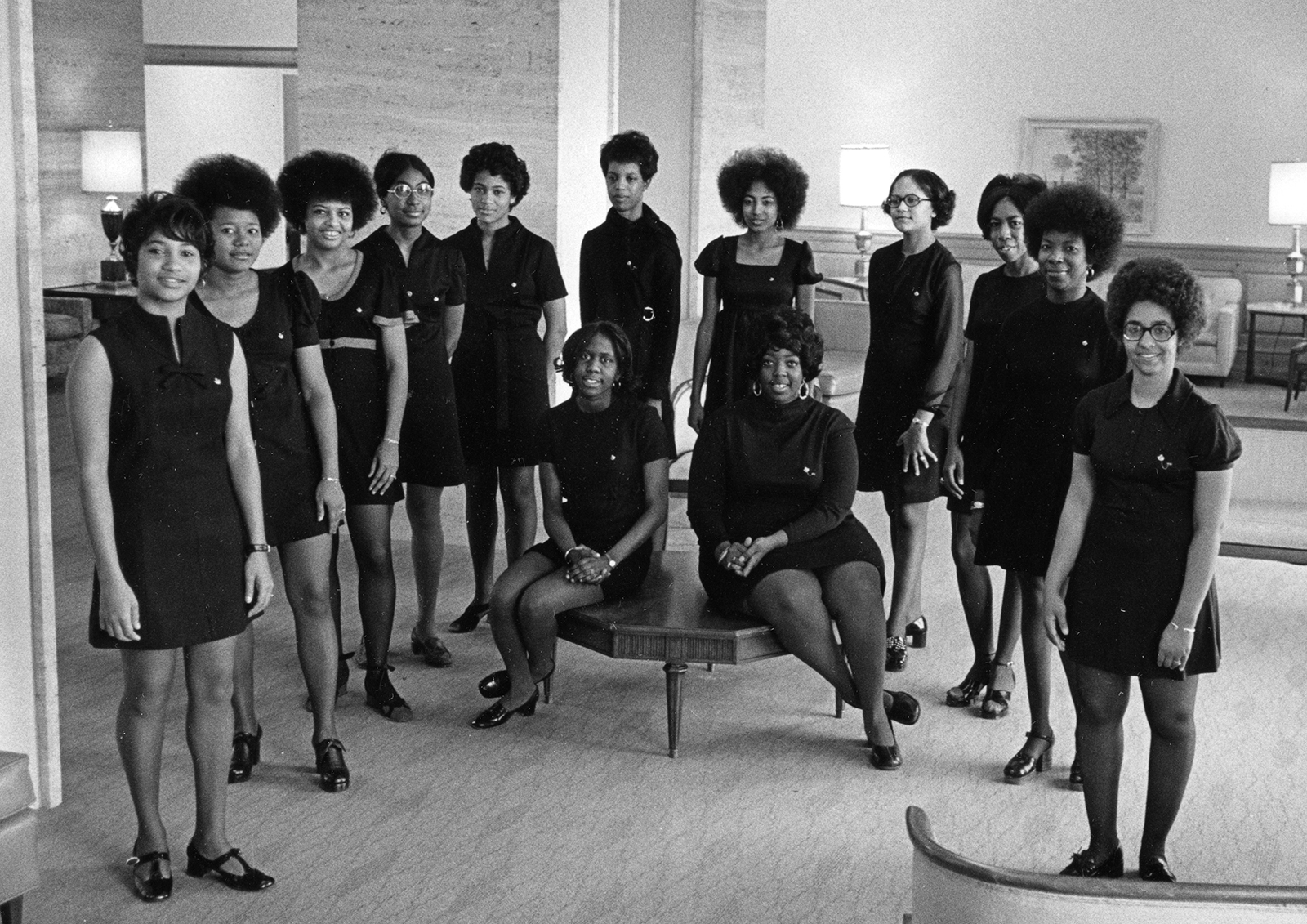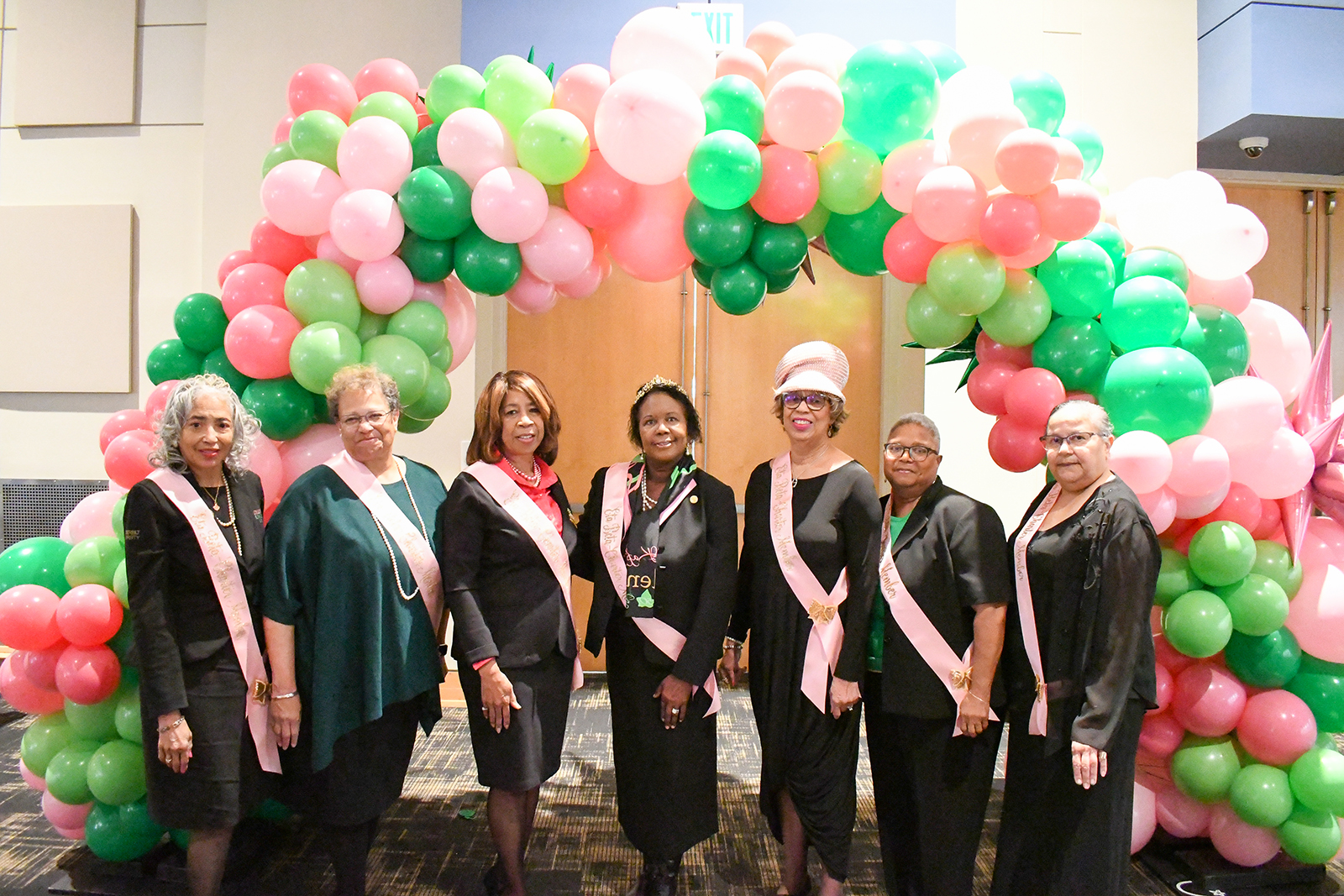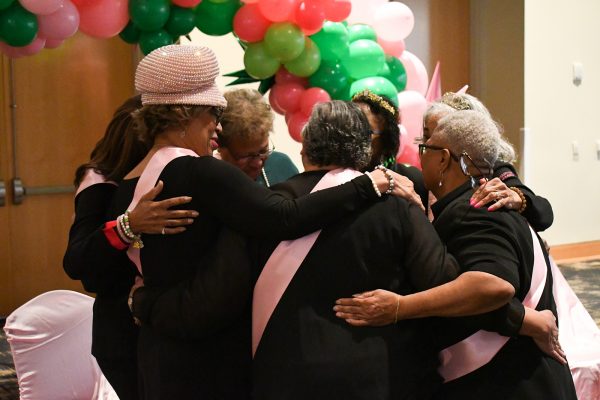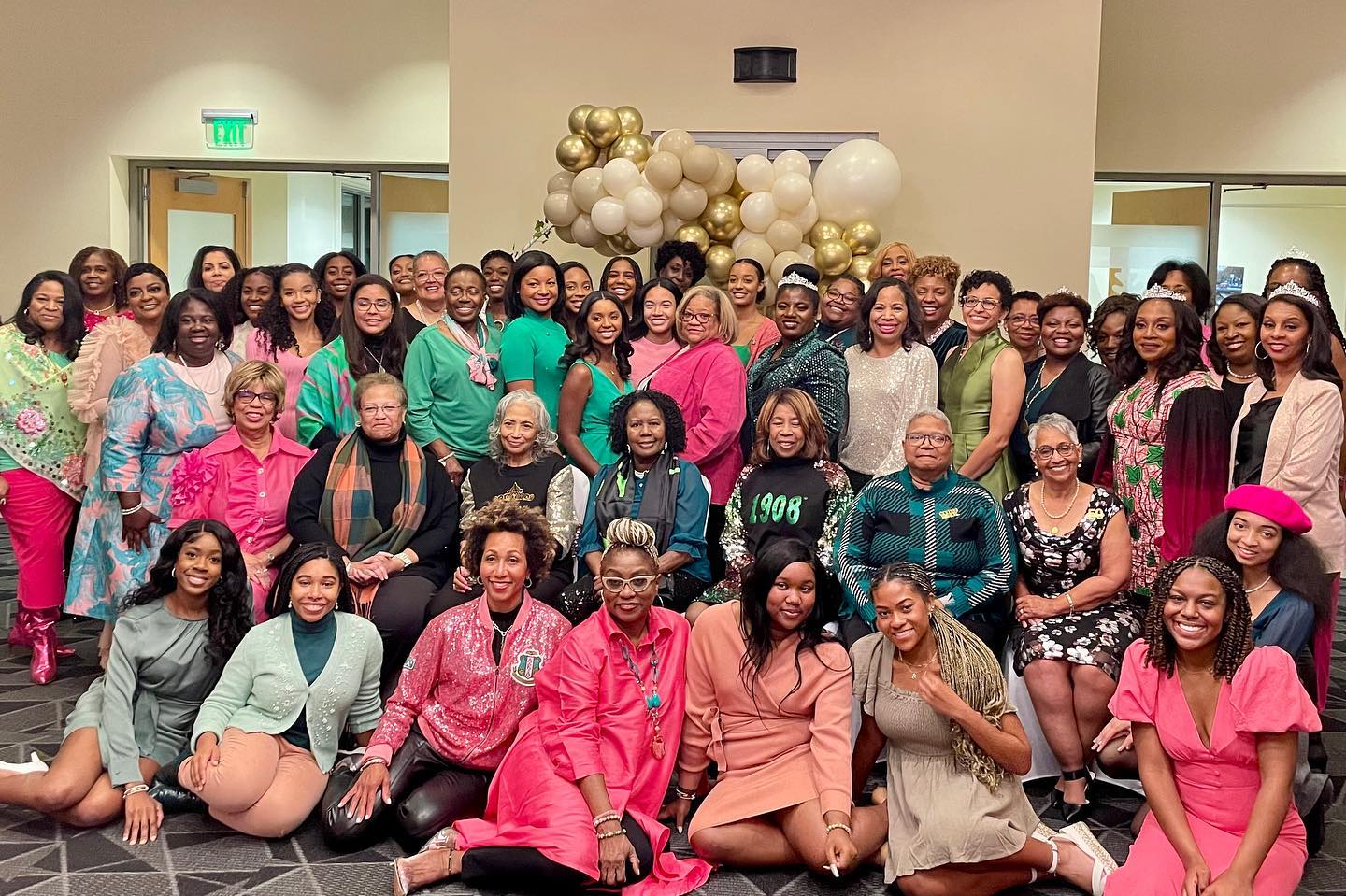
AFRICAN AMERICAN STUDENTS AT PEABODY AND VANDERBILT COLLABORATED IN 1972 TO CREATE THEIR OWN PLACE WITHIN THE GREEK SYSTEM
By Ann Marie Deer Owens, BA’76
Thirteen courageous African American students came together during the fall of 1972 to charter the first Black sorority at Vanderbilt University and what was then called George Peabody College for Teachers.
The young women, who attended Vanderbilt and Peabody before the institutions’ merger, were charter members of the Eta Beta chapter of Alpha Kappa Alpha Sorority Inc. AKA is the oldest Greek-letter organization established by African American college-educated women.
“We knew that we were groundbreakers,” says Myron Oglesby-Joyce, BS’74, EdD’00, who was among eight charter members of Eta Beta to return to campus for its 50th chartering anniversary celebration in November 2022. “Joining AKA gave us a sense of belonging on a campus where we often felt isolated as African American students.”
Efforts to establish a Black sorority at Vanderbilt and Peabody were met with discouragement and skepticism from the administration, according to Oglesby-Joyce, the second president of Eta Beta. After graduation, she would become a teacher, principal and author in Metro Nashville schools for three decades; later she was adjunct assistant professor in Peabody’s Department of Leadership, Policy and Organizations and retired as assistant professor at Belmont University.
Growing up in Nashville and graduating from North High School, Oglesby-Joyce knew that AKA could open career doors for its members and bring lifelong friendships. Two of AKA’s oldest undergraduate chapters were at nearby Fisk and Tennessee State universities. “AKA members were college educated, elegant and sophisticated young women, and I loved the sorority’s vibrant colors of pink and green,” she says. While a rising sophomore, she met with Arthur Cook, then-dean of students at Peabody, to discuss joining with other Vanderbilt students to charter a chapter of AKA on campus. Oglesby-Joyce had found Dean Cook to be a concerned listener when she would raise concerns about campus life for African Americans at Peabody. Cook advised that she talk to Margaret Cuninggim, then-dean of women at Vanderbilt, to gain necessary approval and guidance from the Vanderbilt administration.
Dean Cuninggim opened the meeting saying that she had already spoken with Dean Cook. He had told her that Oglesby-Joyce “wanted to come peacefully to discuss this awesome opportunity of joining other Vanderbilt students to charter a chapter of Alpha Kappa Alpha Sorority on campus.” Cuninggim agreed to meet if only, as she stated, “the meeting would remain peaceful.” Before Oglesby-Joyce had a chance to say much, Cuninggim told her she might make a great contributing member of Delta Delta Delta sorority. Oglesby-Joyce was stunned at Cuninggim’s suggestion. “I told her that I had come in peace to explain some things to her, but obviously after that recommendation, she had no clue that I neither wanted to be part of an established organization that had members who did not represent me racially or culturally, nor did I think they wanted me to become a member of their sorority,” she says.
Cuninggim expressed concerns about the “capacity” of a Black sorority at Vanderbilt, questioning if there would be enough African American students to sustain it. She recommended that potential AKA members form a social club as a precursor to chartering the sorority on campus. In addition, Alpha Delta Omega, the local graduate chapter of AKA, would need to provide staunch support to Vanderbilt to be able to move forward with a plan.
A message went out during spring ’72 across both Vanderbilt and Peabody about an information meeting for those interested in forming a social club that would be the “template” of interest for an AKA chapter. “We met at Branscomb Quadrangle with about 30 African American women who had been AKA members at other colleges and universities,” says Sharon Lee Farmer, BS’75. She became an Eta Beta charter member and the chapter’s first parliamentarian. She would later earn her education specialist degree at George Washington University and was a teacher and administrator in District of Columbia public schools for 27 years. She is now an adjunct professor at Trinity Washington University and the University of the District of Columbia.
Farmer had grown up in North Nashville and her parents had instilled in her a deep love of culture. “Education was important in our community. I participated in theater activities at nearby Tennessee State University. We knew that AKA shared our values,” Farmer says.
Club members were required to learn about the history of Alpha Kappa Alpha, which was founded in 1908 at Howard University. They also had to maintain good grades and volunteer with service projects. As a fundraiser, they sold Krispy Kreme doughnuts after Vanderbilt football and basketball games. “I will never forget when we were stopped by Vanderbilt police while carrying boxes of doughnuts in a Carmichael Towers parking lot,” Farmer says. “They asked where we had obtained the doughnuts. Meanwhile, I observed other students carrying stereo equipment and clothes in the parking lot; they were not questioned. I sat on the curb and said, ‘Take me to jail if you think we stole these doughnuts.’ Fortunately, Myron was more diplomatic with her response.”
There was little publicity about the trailblazing group on campus, although The Vanderbilt Hustler published a brief announcement in its Oct. 20 paper with the headline “Black sorority charter planned.” The date, Nov. 11, 1972, marked a milestone in the history of African Americans at Vanderbilt and Peabody with the chartering of AKA’s newest chapter. Thirteen African American young women, who all wore black dresses, celebrated the chapter’s installation with leadership from other chapters and their families during a reception at Branscomb, which was covered by The Tennessean and Nashville Banner.
The 13 charter members were: Fulvia Anderson, BS’73; Cheryl Guess, BS’73; Deborah Jimmerson (now deceased), BA’74; Myron Oglesby, BS’74; Sharon Lee, BS’75; JoAnn McCoy, BSN’73; Pauline Harrow, BA’73; Carmencita Turner, BSN’74; Nancy Richardson, BA’75; Sylvia Taylor, BA’74; Bennye Forrester, BSN’77; Deborah Nash, BA’73; and Eunice Rogers, BS’74.

Fast forward to 2022, when the current chapter members hosted a 50th chartering anniversary weekend celebration. “Hearing from our charter members only increased our eternal gratitude to these 13 sophisticated women for creating the gift of Eta Beta,” says Brooklyn Clark, chapter president and a senior from Houston, Texas. “From the administration to other students, countless people tried to stop our chartering, but these young women persevered and created a legacy that I, and every other member of Eta Beta, past and present, have been blessed to strive to fulfill. We are honored to continue their work and uphold the excellence of the Elegant Eta Beta Chapter of Alpha Kappa Alpha.”

The celebration began with a Friday evening social gathering and yard show in which the chapter’s history was highlighted through steps, strolls, chanting and dancing. On Saturday there were two opportunities for volunteer service as well as a sisterhood soiree, where charter members shared memories of their college days. The celebration concluded on Sunday with a commemorative brunch where former and present members of Eta Beta spoke on the significance of the anniversary and their experiences on campus.
One of Farmer’s most vivid college memories was finding out she had been assigned to live in Confederate Memorial Hall. “I would never forget the impact of slavery on my ancestors,” she says. “I immediately went to the housing office and a young woman took one look at me and said, ‘We made a big mistake and will switch you to another dorm immediately.’” Farmer was reassigned to North Hall. That was the only year she lived on campus.

Throughout the weekend, the charter members recalled many stories of their time on campus. “The one common theme was the isolation—not feeling especially welcome—on campus,” Oglesby-Joyce says. “Gaining the charter for our sorority made a significant difference, finally giving all of us an opportunity to belong.”
Ann Marie Deer Owens is an alumna and was a senior public affairs officer and writer at Vanderbilt for more than 30 years.